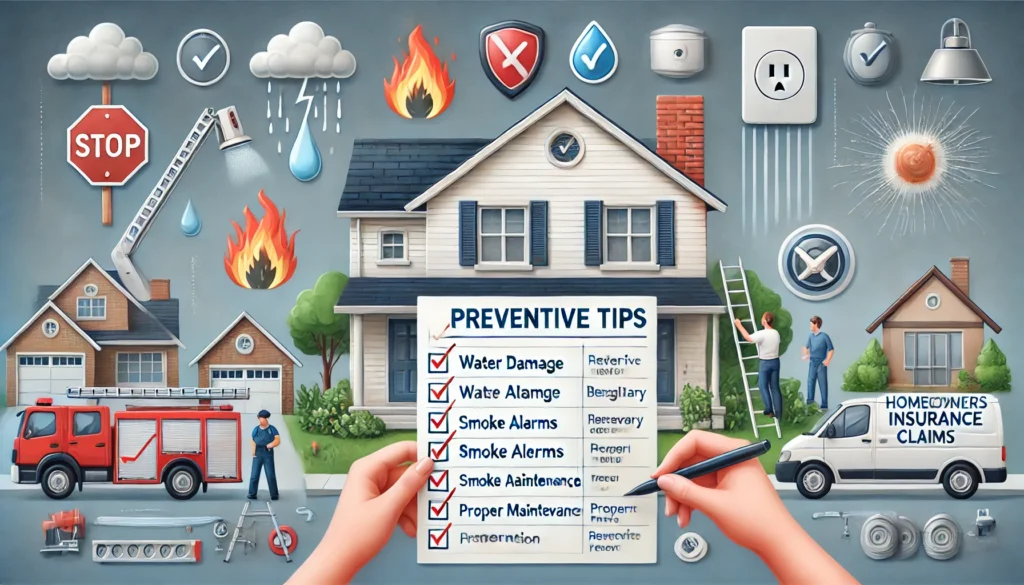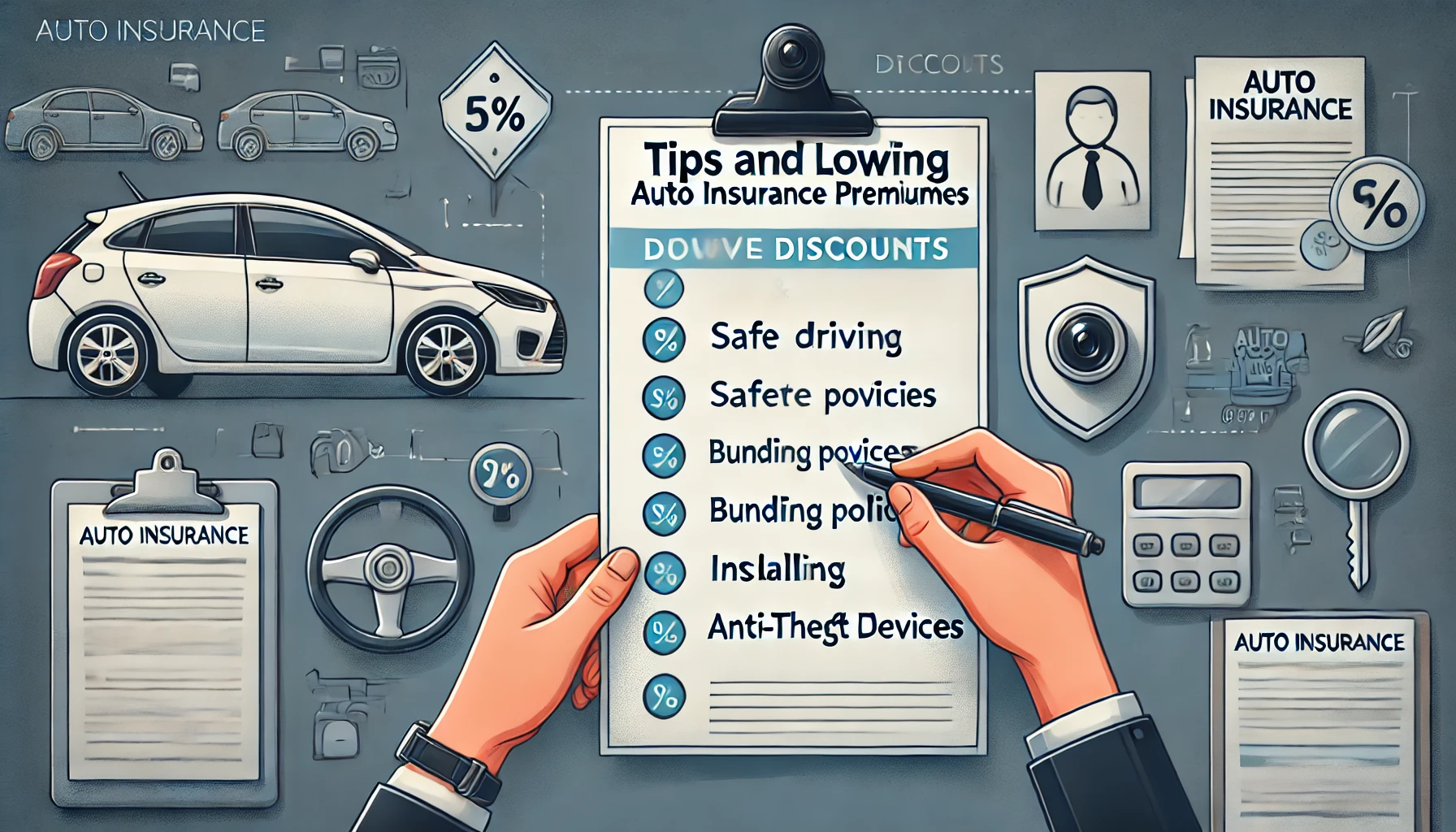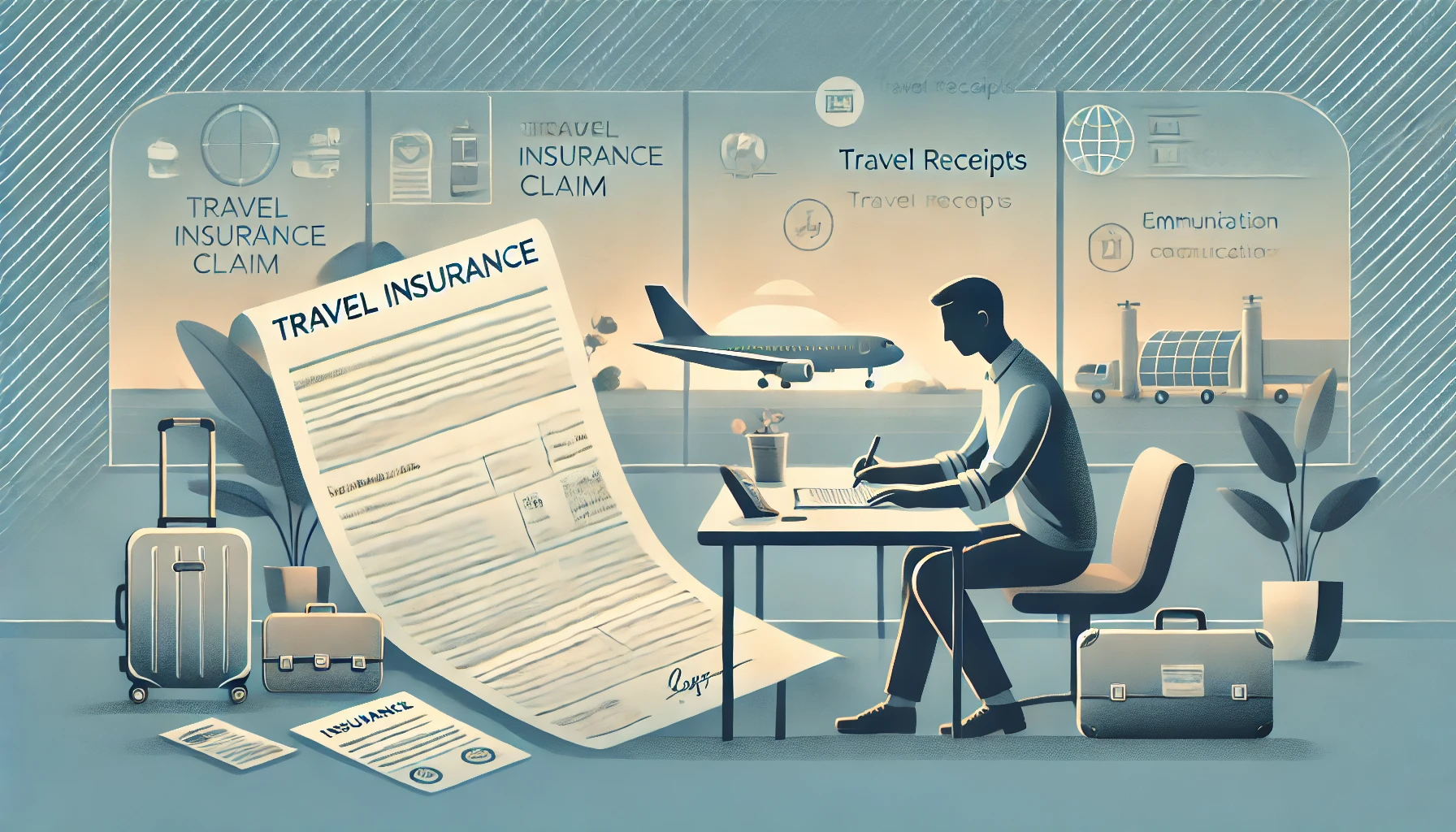Owning a home is often considered one of life’s most significant achievements, but with great investment comes great responsibility. Homeowners insurance offers protection against unforeseen events, ensuring you can safeguard your most valuable asset. While insurance can provide a financial safety net, it’s crucial to understand the common claims homeowners make and how you can prevent them. By avoiding these common issues, you can maintain a safe, sound, and cost-efficient home.
1. Water Damage
Water damage is one of the leading causes of homeowners insurance claims. Whether it’s from burst pipes, leaking roofs, or faulty plumbing, water damage can wreak havoc on your home.
#1. What type of job are you looking for?
#2. What is your work experience level?
#3. What is your English level?
#4. Where are you willing to work?
#5. When can you start?
Common Causes:
- Burst or leaking pipes
- Faulty appliances (e.g., washing machines, dishwashers)
- Roof leaks from storms or wear and tear
- Flooding from heavy rainfall
How to Avoid It:
- Regular maintenance: Inspect pipes, appliances, and your roof periodically for wear and tear. Replace or repair anything showing signs of damage.
- Install a water leak detection system: These systems alert you when water is detected where it shouldn’t be.
- Proper insulation: Ensure your pipes are well-insulated to prevent them from freezing and bursting during cold months.
- Check for roof damage: After a storm or season of harsh weather, check your roof for missing shingles or leaks.
Claim Impact:
Water damage claims can increase your premium significantly, especially if they happen multiple times. Preventative measures help keep your home dry and your premiums stable.
2. Fire Damage
House fires are one of the most devastating events that can occur, both emotionally and financially. Even a small fire can cause significant damage due to smoke, flames, and water from extinguishing efforts.
Common Causes:
- Faulty wiring
- Cooking accidents
- Heating systems (space heaters, fireplaces)
- Unattended candles
- Electrical appliances malfunctioning
How to Avoid It:
- Install smoke detectors: Ensure smoke detectors are in every room and hallway, and test them monthly.
- Electrical maintenance: Hire a licensed electrician to inspect your home’s wiring, especially if it’s an older home. Replace outdated wiring and avoid overloading circuits.
- Practice fire safety: Never leave cooking unattended, extinguish candles when leaving the room, and maintain a safe distance between heaters and flammable materials.
- Create a fire escape plan: Ensure everyone in the household knows how to escape safely in the event of a fire.
Claim Impact:
Fires can destroy entire homes, making this one of the most costly claims. Insurance premiums may rise significantly after such a claim, so taking all possible fire prevention measures is essential.
3. Theft
Home burglaries are a common reason for homeowners insurance claims, particularly in homes that lack proper security measures.
Common Causes:
- Lack of security systems or cameras
- Unlocked doors and windows
- Poor exterior lighting
- Absence of home in extended periods
How to Avoid It:
- Install a security system: Cameras, alarms, and motion-sensing lights can deter burglars and protect your home.
- Lock all entry points: Always lock windows and doors, even when you’re home. Install deadbolts for extra security.
- Secure valuables: Keep expensive items in a safe and out of sight from windows.
- Be mindful of absences: When traveling, ask a neighbor to keep an eye on your home, collect mail, and park their car in your driveway to give the appearance that someone is home.
Claim Impact:
Theft claims often increase insurance rates, as they may indicate a neighborhood prone to crime. Installing security measures can reduce this risk and may even lower your premium.
4. Wind and Hail Damage
Windstorms and hail can cause extensive damage to your home, particularly the roof and siding.
Common Causes:
- Severe thunderstorms
- Tornadoes or hurricanes
- Hailstones damaging shingles or siding
How to Avoid It:
- Invest in durable roofing materials: If you live in an area prone to storms, consider impact-resistant shingles or metal roofing.
- Secure outdoor items: During storms, loose items can become projectiles and cause damage. Secure patio furniture, grills, and garden equipment.
- Trim trees: Trees near your home can cause damage if branches break off in high winds. Keep trees trimmed and healthy.
- Storm shutters: In hurricane-prone areas, storm shutters can protect windows from flying debris.
Claim Impact:
Wind and hail claims are common in areas that experience extreme weather. While some storms are unavoidable, regular roof inspections and proactive measures can reduce damage and the likelihood of filing a claim.
5. Liability Claims
Liability claims arise when someone is injured on your property, and you are deemed responsible. These claims can result from slip-and-fall accidents, dog bites, or other injuries.
Common Causes:
- Slippery walkways or stairs
- Poorly maintained or broken equipment (trampolines, swings)
- Dog bites or attacks
- Pool-related accidents
How to Avoid It:
- Keep your property safe: Regularly inspect walkways, stairs, and any areas where guests may walk to ensure they’re free of hazards.
- Install handrails and non-slip mats: These simple additions can prevent many falls.
- Supervise pets: Ensure your pets are well-trained and always supervised around guests.
- Fence your pool: If you have a swimming pool, install a fence and ensure it has a self-closing gate to keep unsupervised children out.
Claim Impact:
Liability claims can lead to high payouts, especially if medical expenses or legal costs are involved. Protecting your home from these risks can save you from a costly claim and potentially rising premiums.
6. Roof Damage
Roof damage is a frequent claim, especially in regions with severe weather like storms, snow, or hurricanes.
Common Causes:
- Aging roof
- Wind, hail, or storm damage
- Falling trees or branches
- Ice dams forming on the roof
How to Avoid It:
- Regular inspections: Have your roof inspected at least once a year to catch minor issues before they become major problems.
- Trim trees: Keep trees near your house trimmed to prevent falling branches during storms.
- Replace aging roofs: A roof that’s more than 20-30 years old may need replacing, depending on its material. Consider upgrading to impact-resistant materials.
- Clear gutters: Keep your gutters clear of debris to prevent water from backing up and forming ice dams, which can cause water damage inside your home.
Claim Impact:
Roof claims are common and can be expensive depending on the extent of the damage. Keeping your roof well-maintained can minimize the likelihood of a claim and potentially save you on your insurance premiums.
7. Plumbing Issues
Plumbing problems, such as leaks, broken pipes, or sewer backups, can cause significant damage if not addressed promptly.
Common Causes:
- Frozen or burst pipes
- Clogged drains
- Sewer backups
- Aging plumbing systems
How to Avoid It:
- Insulate pipes: Protect pipes from freezing in colder months by insulating them, particularly in areas like basements or attics.
- Regular inspections: Check pipes for signs of corrosion or leaks and address issues early before they escalate.
- Install a backflow prevention system: These systems prevent sewage from backing up into your home.
- Clear drains regularly: Avoid flushing non-flushable items and clear out hair and debris from sinks and showers regularly.
Claim Impact:
Plumbing claims, especially from water damage or sewer backups, can be costly. Proactive maintenance can reduce your likelihood of facing these issues and making claims.
8. Mold Damage
Mold is a common and insidious issue, often developing from water damage that wasn’t promptly addressed.
Common Causes:
- Untreated water damage
- High humidity
- Poor ventilation
- Leaking pipes or appliances
How to Avoid It:
- Address water damage immediately: The longer water sits, the more likely mold will develop. Clean up spills and leaks promptly.
- Improve ventilation: Use exhaust fans in bathrooms and kitchens to reduce humidity.
- Control indoor humidity: Maintain humidity levels below 60% using dehumidifiers if necessary.
- Regular inspections: Check for signs of mold in high-moisture areas like bathrooms, kitchens, and basements.
Claim Impact:
Mold claims can be complex, as many insurance policies have limits on mold coverage or exclude it entirely. Prevention is the best way to avoid mold-related costs.
9. Tree Damage
Falling trees or large branches can cause significant damage to your home, vehicles, or even neighboring properties.
Common Causes:
- Strong winds or storms
- Tree rot or disease
- Improper tree maintenance
How to Avoid It:
- Inspect trees regularly: Check for signs of disease, rot, or instability, particularly in older trees near your home.
- Trim trees: Regularly trimming branches can reduce the likelihood of them falling during storms.
- Remove hazardous trees: If a tree appears unstable or sick, remove it before it causes damage.
Claim Impact:
Tree damage claims are typically caused by falling branches or entire trees during storms. Maintaining your trees can help reduce the risk and minimize damage.
10. Pest Infestations
Pest infestations, such as termites, can cause significant structural damage over time. Most standard homeowners insurance policies do not cover damage caused by pests.
Common Causes:
- Termites or ants
- Rodents (e.g., rats or mice)
- Wildlife intrusion (raccoons, squirrels)
How to Avoid It:
- Regular pest inspections: Have your home inspected for pests, particularly termites, at least once a year.
- Seal entry points: Ensure all cracks, gaps, and openings in your home’s foundation, walls, and roof are sealed.
- Eliminate food sources: Keep your home clean, and avoid leaving food or crumbs that attract pests.
- Address pest issues promptly: If you notice signs of pests, call a professional exterminator immediately.
Claim Impact:
Since most insurance policies don’t cover pest-related damage, preventing infestations is critical to avoiding costly repairs.
Conclusion
Owning a home comes with responsibilities, and while homeowners insurance offers protection against many disasters, it’s always better to prevent problems before they occur. From water damage to fire and theft, understanding the common insurance claims and how to avoid them can save you stress and money. Regular maintenance, proper safety measures, and being proactive can significantly reduce the likelihood of needing to file a claim and keep your insurance premiums low.











